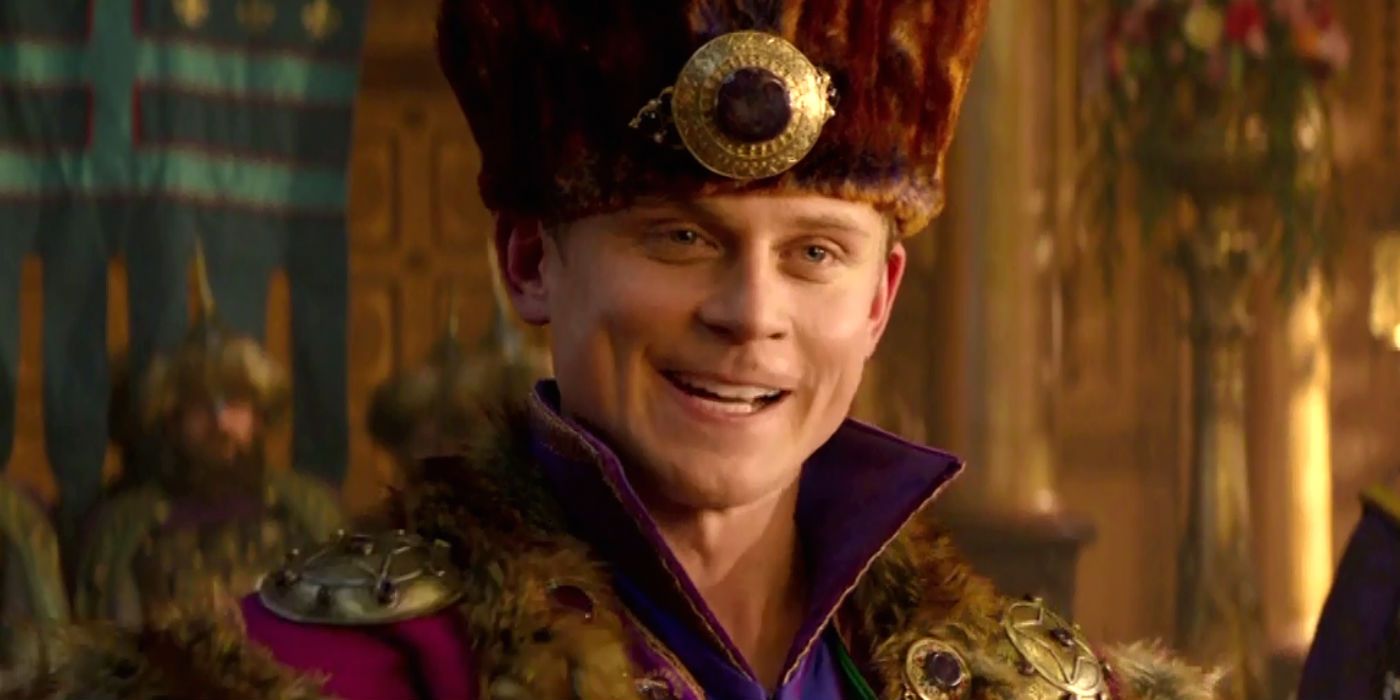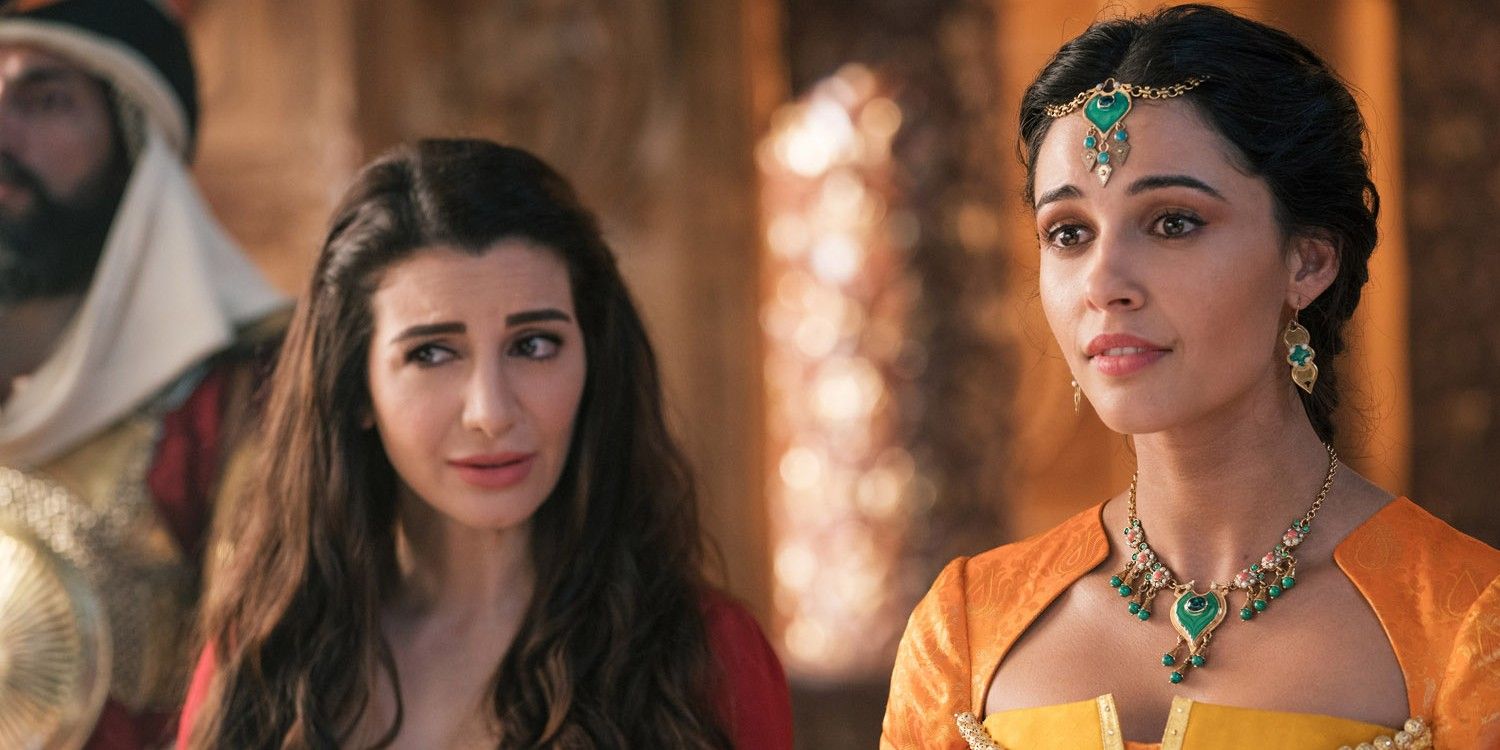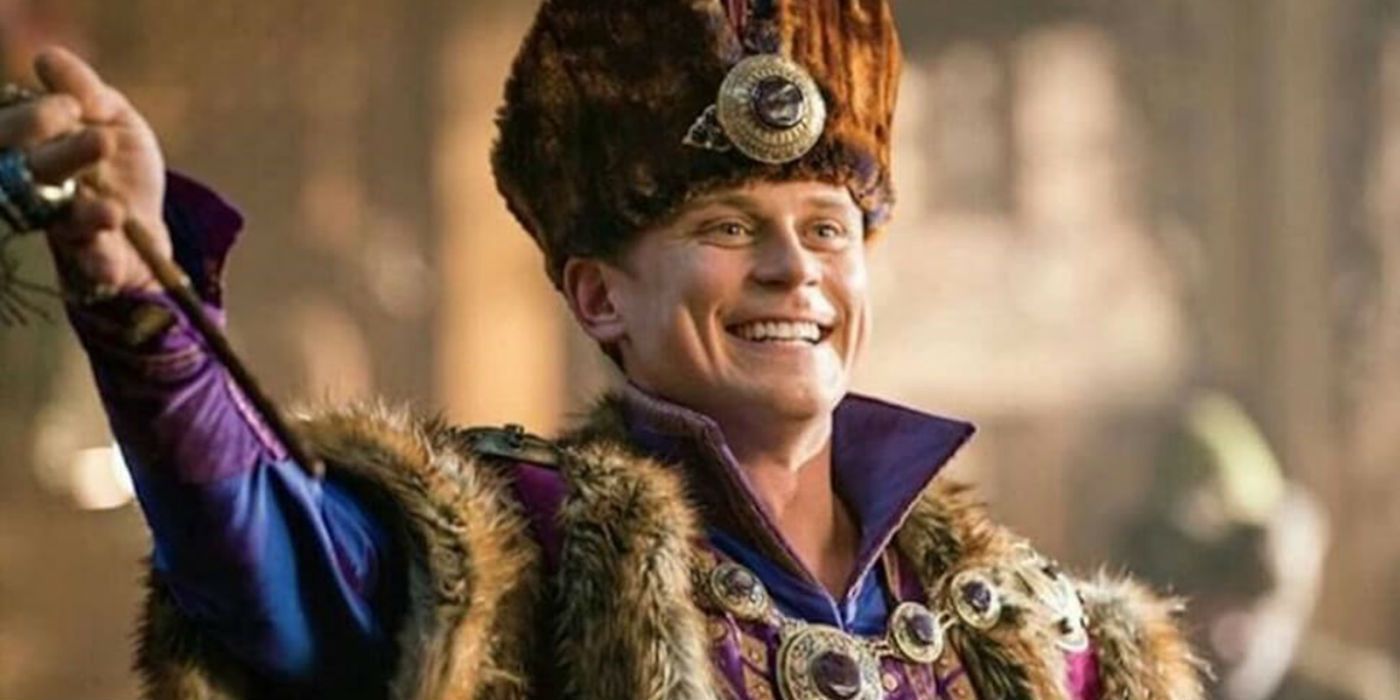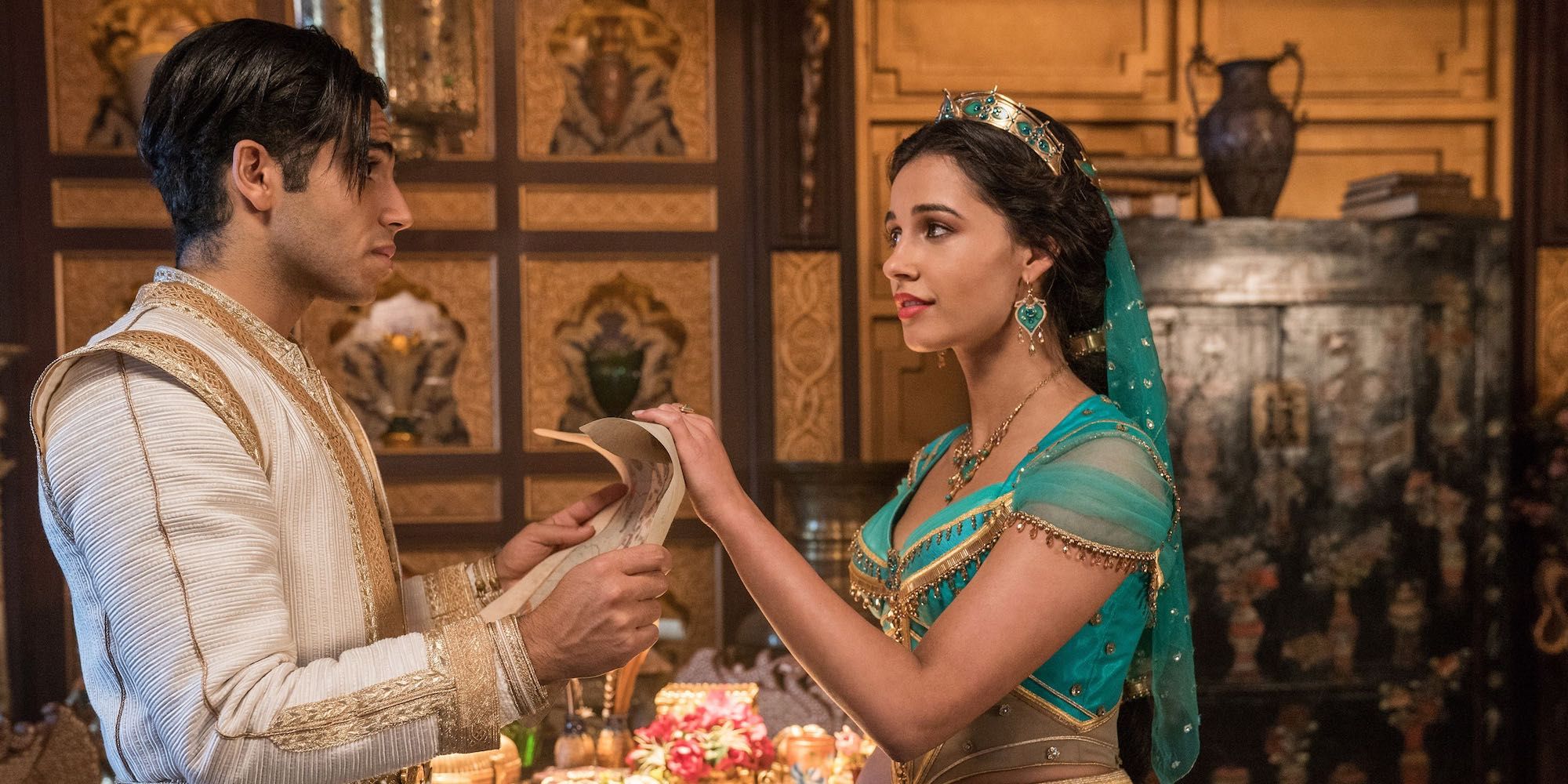The Aladdin remake may have made a lot of money for Disney at the box office, but giving forgettable minor antagonist Prince Anders a spinoff is a terrible idea. Many believed Aladdin would be an expensive write-off for the company thanks to a questionable director choice in the form of Guy Ritchie, an exceedingly high reported budget of $183 million, and uninspiring marketing, and that didn’t even get into the decades-long conversations of Orientalism and cultural appropriation that have surrounded Aladdin since its animated debut in 1992.
However, Aladdin ended up surprising many by taking in over $1.05 billion at the worldwide box office. Currently, it is the seventh highest-grossing movie of 2019 so far, just behind Joker. Overall, in a year full of successes, Disney can happily call Aladdin one of the safest cards in their deck, and Disney movies are seldom designed to be one-off stories.
Disney's franchises are designed to be spun off, given multiple sequels and possible remakes, and expanded into multiple areas of business and creativity. The new Aladdin is a remake in and of itself, but that film gave the property a new lease of life for Disney that they could expand into possible sequels. With their streaming service Disney+ now a major priority, Aladdin seems like the ideal sort of project that could be leveraged successfully into more content, so it wasn’t a surprise when a spinoff movie was announced. It was, however, a shock to see that said spinoff would not center on Aladdin or Jasmine or even Will Smith’s Genie: It would be all about Prince Anders.
Prince Anders Was Already a Controversial Addition
From the moment it was announced that Aladdin had cast Billy Magnussen to play a new character called Prince Anders, the choice made by Disney and the filmmakers was considered controversial. Why did this story set in the Middle East, one where the ensemble would be exclusively people of color (something that remains a depressing rarity in Hollywood), need a token white dude shoehorned into the narrative? Prince Anders essentially replaces the character Prince Achmed from the animated movie, as a rival suitor for Prince Jasmine who is summarily rejected by her. He is given a few more comedic moments than the original character, but he serves little to no narrative purpose and essentially disappears once his scant scenes are finished.
Billy Magnussen had fun with this tiny role and is an actor who deserves a long and fruitful career, but nobody was asking for that character to be in Aladdin in the first place. His being included in the movie (which effectively eliminated a role for a Middle Eastern actor by replacing Prince Achmed) felt like further confirmation that Hollywood had no confidence in stories driven by people of color unless there was a random white person in a few scenes to pander to the perceived majority-white audience. Moreover, the movie itself didn't do much to make Prince Anders feel like an essential component.
Prince Anders Wasn't Even a Memorable Character
Through no fault of Magnussen, Prince Anders is also just a dull character. He provides a couple of laughs but isn’t exactly a stand-out role. Reviews didn’t single out Anders or Magnussen as the must-see element of Aladdin, and it simply wouldn't be true to describe the actor or character as break-out successes following its release. Indeed, the lion’s share of praise for the film, including from negative reviews, was directed towards Will Smith, Mena Massoud, and Naomi Scott.
Disney likes to spin off popular characters or center specific actors in ways that ensure audience reach and potential for expansion. Look at the mammoth popularity of Baby Yoda in The Mandalorian or how Toy Story 4 took its breakout character Forky and made a series of shorts focused on him for Disney+. However, both of those characters are far more beloved than Prince Anders, and also both served more substantial narrative purposes in their respective stories than Anders did. He’s so inconsequential that you would be forgiven for thinking the movie just forgot about him halfway through.
Mena Massoud Has Struggled to Land An Audition Since Aladdin
The Prince Anders spinoff movie is a strange choice, but it's the optics of it that are really terrible. Disney is a company that has spent decades reinforcing some questionable and seriously outdated racial tropes, from the softening of the history of slavery in Song of the South to the jive-talking crows in Dumbo to the mega-racist Asian cats in Lady and the Tramp and The Aristocats. Aladdin is still considered by many to be one of the more egregious modern examples of how Disney’s blind spots when it comes to race perpetuate stereotypes about Arab and Middle Eastern people that the film industry has bought into since its origins.
One of the benefits of these live-action remakes, as cynical and hollow as they often are, is that they offer Disney a chance to make corrections to those errors and better diversify their catalog of work. It clearly worked with Aladdin, even as many doubted a cast of mostly unknown people of color would sell worldwide. Yet even after that proven financial success, Disney’s chosen direction with this property is to focus on the one white character added to the remake despite the massive backlash.
The image this reinforces is all the sadder for Disney because it was recently revealed that Mena Massoud, the actor who played Aladdin to great acclaim, has struggled to land auditions since starring in the film. Despite being in one of the highest-grossing films of 2019 and doing a damn fine job in a tough leading role that required the triple-threat of acting, singing, and dancing, Massoud has remained ignored by the industry. It’s hard to look at this story and then the news of the Prince Anders movie and not be immediately unsettled by the message being sent here.
Mena Massoud offered Disney a bright way forward: A hansome leading man with tons of charm, a great singing voice, and great comic timing. He’s the kind of celebrity they need and yet Disney once again reverted to whiteness and a story nobody was asking for, centered on a character that nobody cared for. Separate from the wider context, a Prince Anders spinoff movie would still make no sense, but in a world where Aladdin himself can’t get an audition (and Aladdin 2 has yet to be confirmed), it's offering someone no one was really asking for, while also creating a terrible look for Disney.




